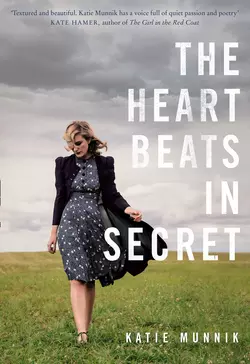The Heart Beats in Secret

Katie Munnik
Тип: электронная книга
Жанр: Современная зарубежная литература
Язык: на английском языке
Стоимость: 1552.59 ₽
Статус: В продаже
Издательство: HarperCollins
Дата публикации: 16.04.2024
Отзывы: Пока нет Добавить отзыв
О книге: Jane, 1940 In a small rented house on the east coast of Scotland, a cold winter drags on and Jane faces motherhood alone. But with her husband away at war, she fears small town suspicions. She keeps secrets. Who will they protect and who will they hurt? In times of war and separation, so much is left unsaid.Felicity, 1969 Jane’s daughter chooses to emigrate to Montreal, leaving behind uncomfortable questions about her background and discovering a new political world of social unrest and undreamt-of freedoms. She settles in a commune in rural Quebec, where her own child is born just as the Apollo Mission lands on the moon.Pidge, 2006 Inheriting her grandmother’s house is a surprise. As is the wild goose who stalks into the kitchen and makes herself at home. But somewhere between the flying feathers and her own gathered confusions, Pidge pieces together fragments of her family’s history, finding surprising answers amongst the stories – and the silences – of the past.The Heart Beats in Secret is an evocative, intricate and powerful story of three generations of women. Set between Scotland and Canada, the novel explores the wilderness of the heart, the secrets concealed with every beat, and the strength of maternal desire.